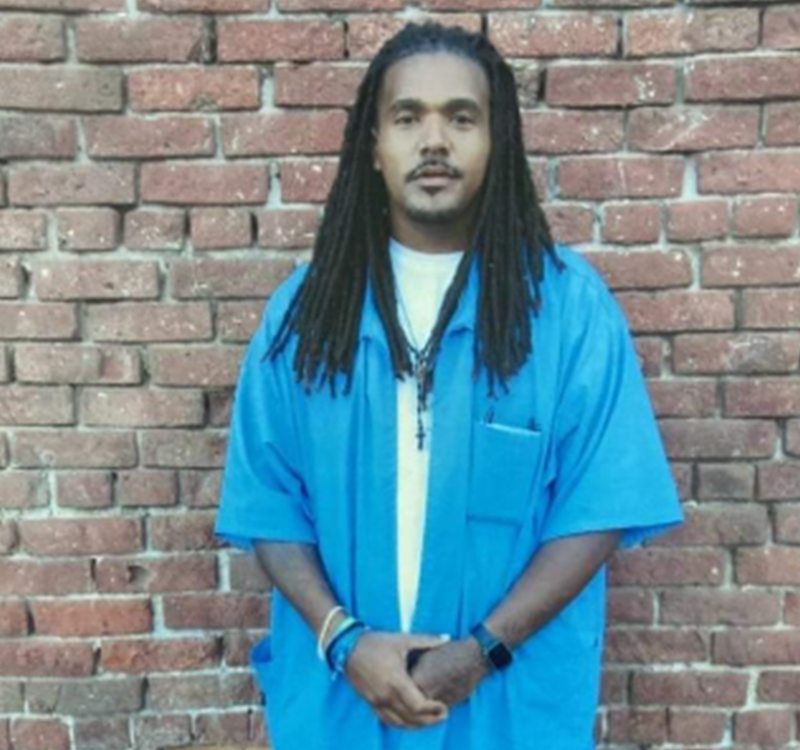Incarcerated person Steven Warren Speaks Out: How California Can End Forced Prison Labor with Prop 6 By Steven Warren and Gabrielle Nicole
Incarcerated person Steven Warren Speaks Out: How California Can End Forced Prison Labor with Prop 6 By Steven Warren and Gabrielle Nicole

(San Quentin, CA) – As Californians head to the polls this November, Proposition 6 presents a critical opportunity to address prison labor and the ongoing legacy of slavery. Game 4 P.E.A.C.E alumnus, Steven Warren, a San Quentin State Prison inmate and leader of the Civic Engagement Group, offers a powerful first-hand perspective on the realities faced by incarcerated individuals subjected to what he and many others deem modern-day forced labor.
Warren’s experience, as both an inmate and alumnus of the Ella Baker Center for Human Rights, illustrates how prison labor practices continue to exploit incarcerated workers. “I didn’t ask for the job,” Warren recalls, referencing his involuntary assignment in the prison kitchen during the COVID-19 pandemic. “I hadn’t been asked if I wanted to work in the kitchen.”
For the grueling work of managing chemicals, unloading trucks, and handling inventory, Warren received a meager 8 cents an hour—barely a fraction of California’s minimum wage. He, like many others, believes that prison labor under such conditions amounts to legalized exploitation.
The Burden of Forced Labor
During the pandemic, the hardships of prison labor became even more severe. Prisoners were labeled “critical workers” and required to work from early morning until late at night, seven days a week. Those who refused were punished with Rules Violation Reports (RVRs), which could affect their privileges, sentence reductions, and chances for parole.
“We were made to work 7 days a week from 3 a.m. to 7 p.m. when all the other units fell sick from the COVID virus,” Steven Warren explains. “If we didn’t report to work, we were punished with RVRs. This is forced labor.” Warren’s experience speaks to the broader issue of incarcerated individuals being coerced into labor under conditions that disregard their health, safety, and dignity.
Steven’s work schedule also interfered with his attempts to join rehabilitative programs, essential for inmates who seek self-improvement and preparation for life after release. After four years of such work, when Warren fell ill and provided medical documentation, he was still punished, losing 30 days of good time credits and his position on the Inmate Advisory Council.
Proposition 6: A Call for Change
Proposition 6 aims to amend California’s Constitution, removing language that allows slavery and involuntary servitude as forms of punishment for crimes. This clause, originating from the 13th Amendment, has been used for decades to justify forced labor in prisons. For Steven Warren and other advocates, passing Prop 6 would mark a historic step toward dismantling this long-standing loophole.
“Prop 6 is the removal of the verbiage ‘slavery and involuntary servitude,'” Steven emphasizes. “If we in California stand for slavery to be allowed in any form or acceptable for any reason, we can’t move forward progressively.”
Warren stresses that while the loss of liberty is an inherent part of incarceration, the focus should be on rehabilitation, not punishment through forced labor. “Those with release dates won’t be assigned a job when released to society like the prison system does, but with participation in rehabilitative programs/courses, it gives the tools necessary for attaining and retaining a job,” he says.
The Impact of Prop 6
If approved, Proposition 6 would prohibit any form of slavery or involuntary servitude in California, including in the context of prison labor. California would join several other states, such as Colorado and Utah, which have already removed similar clauses from their constitutions.
While opponents argue that prison labor provides structure and skills for inmates, advocates like Warren believe that these programs should be voluntary and fairly compensated. Inmates, Warren argues, should have the choice to engage in meaningful work programs that contribute to rehabilitation rather than being forced into exploitative labor.
How You Can Help
Steven’s story sheds light on the urgency of passing Prop 6, but the change ultimately lies in the hands of California voters. Here’s what you can do:
- Educate Yourself: Learn about Proposition 6 and its potential impact. The Ella Baker Center for Human Rights and other organizations provide valuable resources on prison labor and the fight for justice.
- Vote Yes on Prop 6: Ensure you’re registered to vote and cast your ballot in favor of ending forced labor. Early voting and mail-in options are available in many counties.
- Spread Awareness: Share Warren’s story and the broader issues surrounding prison labor with your community. Use social media and local forums to encourage informed conversations.
- Support Advocacy Groups: Organizations like the Anti-Recidivism Coalition and Legal Services for Prisoners with Children are working to improve the rights of incarcerated individuals. Consider supporting them in their efforts.
- Contact Your Representatives: Reach out to your local and state officials to express your support for Prop 6 and call for broader reforms to the prison system.
A Path Toward Justice
Proposition 6 offers California a chance to right a historic wrong. By eliminating forced labor in prisons and prioritizing rehabilitation, the state can take a bold step toward a more humane and just criminal justice system. For Steve Warren and countless others incarcerated in California, the passage of Prop 6 could signal a new chapter in the fight for dignity, human rights, and genuine rehabilitation.
Sources:
– Steven Warren, testimony from San Quentin Prison
– Civic Engagement Group at San Quentin Prison
– Ella Baker Center for Human Rights
– California Secretary of State Proposition 6 Information
– Anti-Recidivism Coalition


